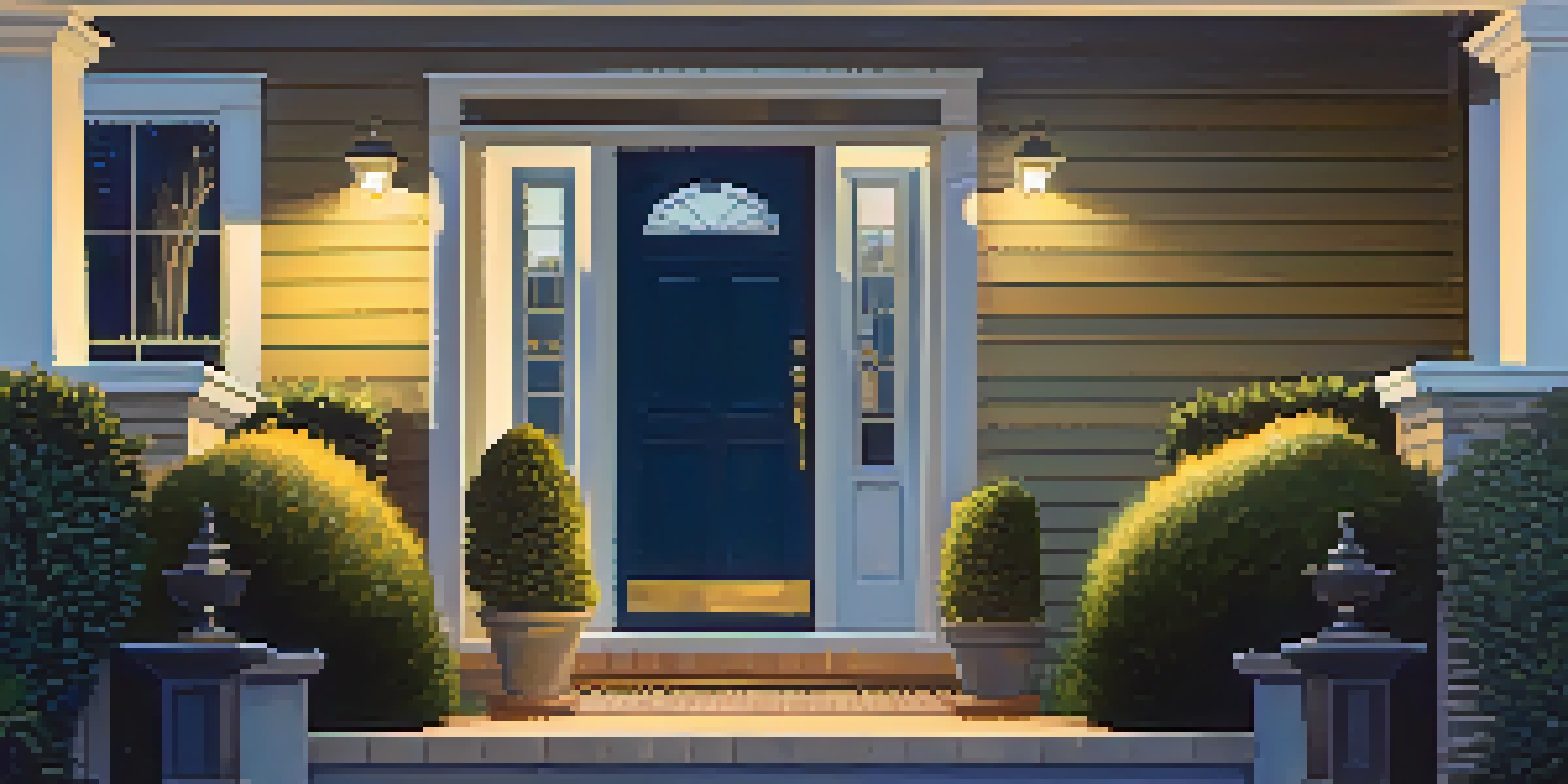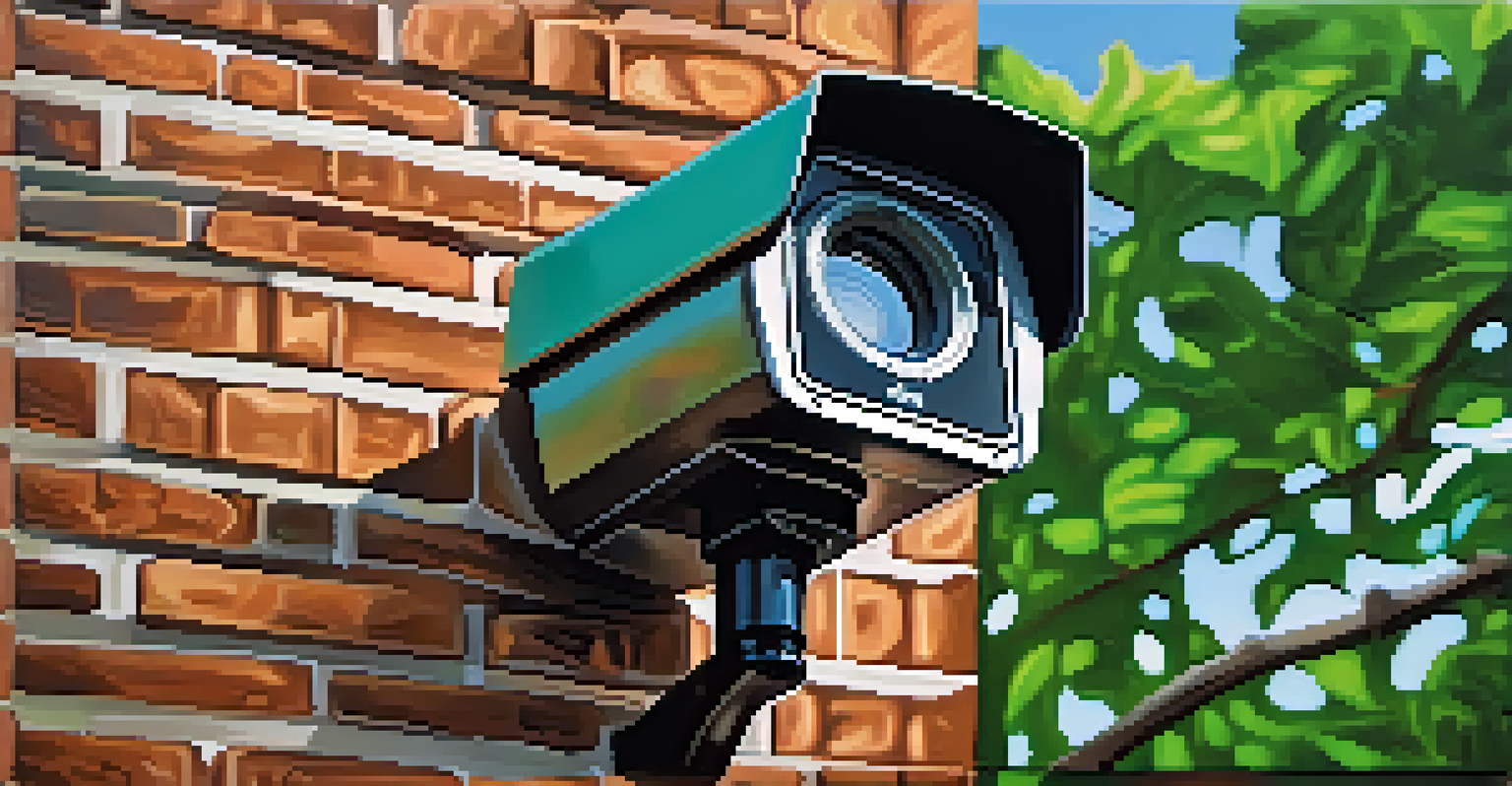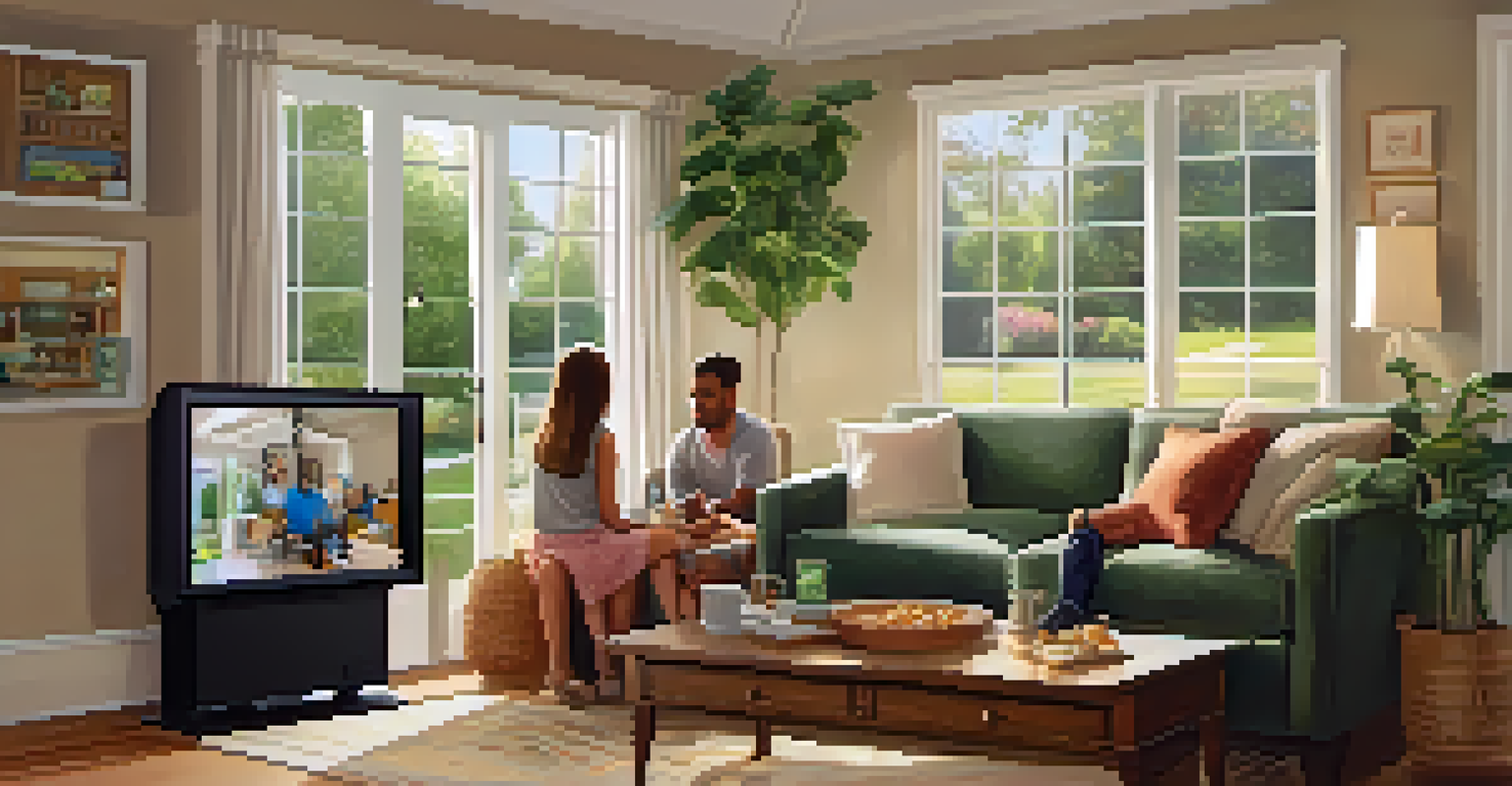Understanding Home Security System Features and Options

The Importance of Home Security Systems
Home security systems serve as a crucial line of defense against intruders. With rising crime rates, having a reliable security system is no longer just an option; it's a necessity. Families want peace of mind, and these systems can provide that through advanced technology and monitoring services.
The best way to predict the future is to create it.
Consider how a home security system can act as a deterrent. Many burglars will think twice if they see a security camera or a yard sign indicating that a home is protected. This not only protects your property but also helps create a safer neighborhood.
Additionally, modern security systems can offer features beyond just burglary prevention. They can monitor environmental hazards like smoke or carbon monoxide, ensuring your family's safety in various situations.
Key Features of Home Security Systems
When choosing a home security system, it's vital to understand its key features. Common elements include door and window sensors, motion detectors, and surveillance cameras. Each component plays a unique role in creating a comprehensive security solution for your home.

For example, door and window sensors alert you when a potential breach occurs, while motion detectors can trigger alarms when movement is detected in restricted areas. Surveillance cameras, on the other hand, provide visual evidence and can be monitored in real-time through mobile apps.
Consider how these features can work together. A well-integrated system allows you to receive alerts on your smartphone while recording footage, giving you a complete picture of your home's security status.
Types of Home Security Systems
Home security systems come in various types, each catering to different needs and preferences. You can choose between wired systems, which are hardwired into your home, or wireless systems that offer ease of installation and flexibility. Understanding these options can help you make an informed choice.
Security is not a product, but a process.
Wired systems tend to be more reliable but can be more challenging to install. Meanwhile, wireless systems are often more user-friendly and can be expanded easily to include more devices over time. Think about your home setup and choose what works best for you.
Moreover, some systems offer additional features like smart home integration, allowing you to connect your security devices with other smart technology in your home. This can provide enhanced convenience and control.
Monitoring Options: DIY vs. Professional
When it comes to security monitoring, you typically have two main options: DIY monitoring or professional monitoring. DIY systems allow you to set up and manage your security at your own pace, while professional services provide round-the-clock surveillance by trained personnel.
With DIY monitoring, you can receive alerts on your phone and control your system remotely, which is great for tech-savvy individuals. However, professional monitoring offers peace of mind, as trained experts are ready to respond to emergencies 24/7.
Consider your lifestyle and preferences when making this choice. If you travel frequently or have a busy schedule, professional monitoring might be the better option to ensure your home is always protected.
Smart Home Integration for Enhanced Security
Smart home integration is becoming increasingly popular, allowing homeowners to connect their security systems with other smart devices. This includes smart locks, lighting, and thermostats that can be controlled via a single app. Such integration not only enhances security but also adds convenience to your daily routine.
For instance, you can program your smart lights to turn on when your security system detects motion, creating the illusion that someone is home even when you're not. This can be an effective deterrent against potential intruders.
Moreover, many smart security systems offer voice control features, making it easier to manage your security with just your voice. This level of integration can simplify your life while keeping your home safe.
Choosing the Right Security Cameras
Security cameras play a vital role in any home security system, and choosing the right ones can make all the difference. Consider factors such as resolution, night vision, and whether you want indoor or outdoor cameras. The best cameras will provide clear footage and be able to withstand various weather conditions if placed outside.
Additionally, think about camera placement and coverage. Strategically positioning cameras can help monitor vulnerable areas like entry points or large outdoor spaces. Some systems even offer pan-tilt-zoom capabilities, allowing you to adjust the camera angle remotely.
Don't forget to check if the cameras come with features like motion detection alerts and cloud storage for recorded footage. These capabilities can enhance your security and provide you with crucial evidence if needed.
Cost Considerations for Home Security Systems
When deciding on a home security system, cost is a significant factor to consider. Prices can vary widely based on the features, type of system, and whether you opt for professional monitoring. It's essential to establish a budget that aligns with your security needs and financial situation.
In addition to upfront costs, consider any ongoing fees for monitoring services or equipment maintenance. Some systems may require monthly subscriptions, while others may have one-time purchase costs. Understanding these expenses will help you avoid any surprises down the line.

Remember, investing in a quality security system can save you money in the long run by preventing theft and damage. It's often better to view this as a long-term investment in your peace of mind rather than just an upfront expense.